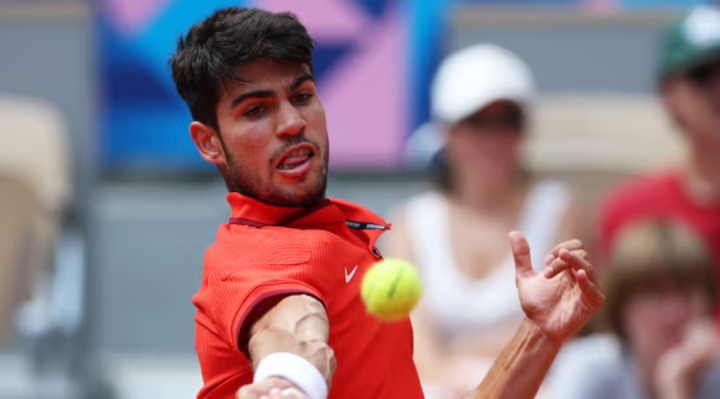Formula 1 Confirms Future Of Monaco Grand Prix In Contract Announcement
In a landmark development for motorsport enthusiasts and fans of Formula 1, the future of the iconic Monaco Grand Prix has been confirmed, with the sport’s governing body and the Monaco Automobile Club (ACM) announcing the signing of a new contract that will see the legendary race remain on the Formula 1 calendar for the foreseeable future. The Monaco Grand Prix, widely regarded as one of the most prestigious and challenging events in motorsport, will continue to be a central part of F1’s calendar, much to the relief of fans, drivers, and teams alike.
Monaco: The Jewel in Formula 1’s Crown
The Monaco Grand Prix, held on the narrow streets of Monte Carlo, is one of the oldest and most celebrated races in the history of Formula 1. First contested in 1929, the race has seen numerous legendary drivers make their mark on the tight, twisting circuit that winds through the glamorous streets of the principality. With its unique combination of glamour, history, and technical difficulty, Monaco stands out as one of the most coveted wins for any F1 driver.
Despite its small size and the challenges it presents in terms of modern-day racing — with the narrow track and lack of overtaking opportunities — Monaco has remained an integral part of F1’s tradition. The contract announcement is seen as a win for both the sport and the country of Monaco, ensuring that the event retains its place as a must-attend spectacle each season.
The New Contract: Details and Implications
The new contract, which will keep the Monaco Grand Prix in the Formula 1 calendar, was finalized after months of negotiations between F1’s parent company, Liberty Media, and the ACM. Though the specific terms of the deal remain confidential, the announcement clarified that Monaco will continue to host the event at least until the 2025 season, with the option for future extensions.
One of the key aspects of the deal is that the Monaco Grand Prix will remain part of F1’s European leg of the championship, meaning that the race will not only continue to be an important part of the F1 calendar, but also maintain its traditional May date. The May event in Monaco is synonymous with the start of the European season and is considered one of the jewels in the Formula 1 crown.
This announcement comes after a period of uncertainty surrounding the future of the race. There were reports suggesting that the high costs and lack of substantial financial returns for F1 teams and organizers had cast doubt over Monaco’s future. The race’s status had been questioned, particularly with the increasing number of lucrative and modern venues joining the F1 calendar. Cities like Miami, Saudi Arabia’s Jeddah, and Las Vegas have attracted significant attention due to their state-of-the-art facilities and massive financial backing. However, the Monaco Grand Prix has maintained its allure and prestige, and this contract extension reflects the understanding that the race’s heritage is too valuable to be overlooked.
A Special Race With Unique Challenges
Monaco’s unique characteristics make it a race unlike any other. The street circuit is renowned for its narrow, twisty layout, where one mistake can end a driver’s race in an instant. Its low grip, tight corners, and minimal run-off areas mean that drivers must be precise, showcasing their skills in the face of near-impossible odds. This aspect of the Monaco Grand Prix has made it a race where strategy and precision are just as important as raw speed.
The glamour of the event also sets Monaco apart. Set against the backdrop of the luxurious Mediterranean coastline, the race is an exclusive event that attracts celebrities, royalty, and high-net-worth individuals from around the world. The glitz and glamour, combined with the cutting-edge technology of Formula 1, have cemented Monaco as a unique fusion of sports and luxury.
However, Monaco’s place in the modern F1 calendar has faced scrutiny over the years. The circuit’s limitations in terms of overtaking opportunities have made it a somewhat predictable race in terms of results. Critics have questioned whether Monaco’s historical and cultural significance can justify its spot in an era of rapidly evolving motorsport where overtaking and entertainment value are paramount.
But, for many drivers, winning in Monaco remains the pinnacle of their careers, and the race holds a sentimental and emotional value that cannot be replicated elsewhere. The glamour, the atmosphere, and the prestige attached to the event are simply irreplaceable.
The Future of Monaco in a Changing F1 Landscape
F1’s landscape is evolving, with Liberty Media working to expand the sport’s global footprint, attracting new fans, and bringing in a diverse range of new venues. The sport has seen an increase in the number of races held in non-traditional markets, such as the Middle East, Asia, and the United States. In recent years, races in places like Bahrain, Abu Dhabi, and Singapore have become staples on the calendar, while the United States has seen an explosion of interest with the addition of races in Austin, Miami, and the Las Vegas Grand Prix.
Given the increasing number of races, it was initially unclear whether Monaco could continue to justify its place. The fact that it has now secured a new contract signals F1’s understanding of its value, not just as a race, but as a brand and cultural cornerstone. The Monaco Grand Prix is part of the DNA of F1, and while modern demands continue to change the sport, Monaco’s traditionalist approach has ensured it remains a key fixture.
The deal also reflects F1’s acknowledgment of the growing demand for diversity in its race calendar. While the sport continues to push for global expansion, the Monaco Grand Prix remains an important link to the past and provides a balance to the more commercialized, high-tech circuits around the world.
The Fans’ Perspective
For many fans, Monaco represents the pinnacle of F1’s heritage. The event’s timeless nature, along with its historical significance, ensures that it holds a special place in the hearts of motorsport fans worldwide. The glamorous setting, combined with the unique challenges of the circuit, means that the Monaco Grand Prix is not just a race but a cultural event that attracts people from all walks of life.
Supporters of the Monaco Grand Prix have long held that its place in Formula 1 should be preserved. For them, no other race can match the spectacle, the atmosphere, and the significance of Monaco. While the action on the track might not always be as fast and frenetic as at other circuits, the intensity of the race, combined with the atmosphere and prestige, makes it a must-see event.
Conclusion: Monaco’s Enduring Legacy
With the recent confirmation of the Monaco Grand Prix’s future in Formula 1, fans and stakeholders can rest easy knowing that one of the most iconic and cherished races in motorsport will continue to thrill audiences for years to come. The new contract ensures that Monaco remains a vital part of the sport’s heritage, offering drivers and fans alike a chance to experience the glamour, challenge, and prestige of one of the sport’s most revered events.
As the world of Formula 1 continues to evolve, one thing is certain: Monaco’s place in the sport is secure, and its continued presence on the calendar ensures that the legacy of the Monaco Grand Prix will remain intact for future generations of motorsport fans.





